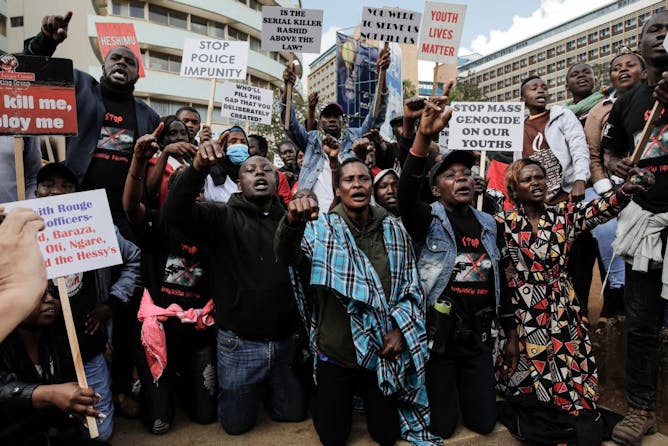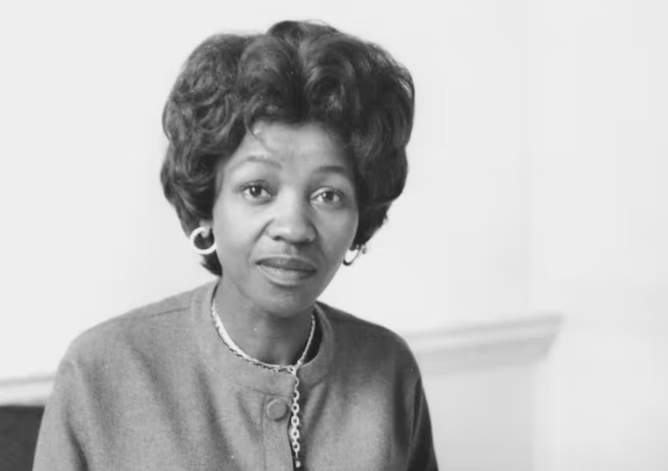|
Remember Jerusalema? The hit South African song soothed anxiety during COVID lockdowns and went global, in part thanks to an Angolan online dance challenge. Rising Afrobeats singer Rema then captured the post-pandemic energy in a song called Calm Down. This time it was a Cameroonian dancer called Loïc Reyel who put moves to the spicy, groovy love song. A year later the Calm Down dance challenge had swept the planet and become an anthem for women’s protests in Iran. African culture is shaping global popular culture in ways that affirm African life, writes Ananya Jahanara Kabir.
What would a world without the police look like? It’s hard to imagine – the police are supposed to keep people safe. But they’ve also been used to repress social movements and prop up undemocratic regimes. In Kenya in particular, they have been accused of extortion, violence and extrajudicial killings. In many low-income neighbourhoods, Kenyans avoid calling the police to respond to crimes. Wangui Kimari and Zoltán Glück make the case for an alternative to punitive policing.
If you haven’t done so yet, please take our survey and give us some feedback.
Take our survey
|

Ananya Jahanara Kabir, King's College London
The five Iranian teenagers were arrested and forced to apologise – but the dance challenge continues to go viral.
|

Wangui Kimari, University of Cape Town; Zoltán Glück, American University
Alternatives to violent policing already exist in the daily practices of Nairobi residents who don’t depend on the police for safety.
|

Amica Müller-Nedebock, Stellenbosch University
Our understanding of Parkinson’s disease is far from complete. But researchers now believe that in most cases, Parkinson’s is caused by a complex interaction between genetic and environmental factors.
|

Athambile Masola, University of Cape Town
These columns demonstrate that Noni Jabavu’s concerns from 1970s are still relevant today.
|
From our international editions
|
-
Matthew Savoca, Stanford University
Many marine animals, birds and fish are ingesting plastic. New research identifies the first named health effect from it.
-
Spiros Bougheas, University of Nottingham
There are two types of systemic risk that can infect the highly interconnected global banking system.
-
Noorzehra Zaidi, University of Maryland, Baltimore County
Communal meals to break fast can mean lots of single-use plastics. A switch to environmentally friendly principles is in line with Islamic principles through the ages.
-
Susan Walker, Anglia Ruskin University
It was previously thought that only combined hormonal contraceptives carried an elevated breast cancer risk.
|
|